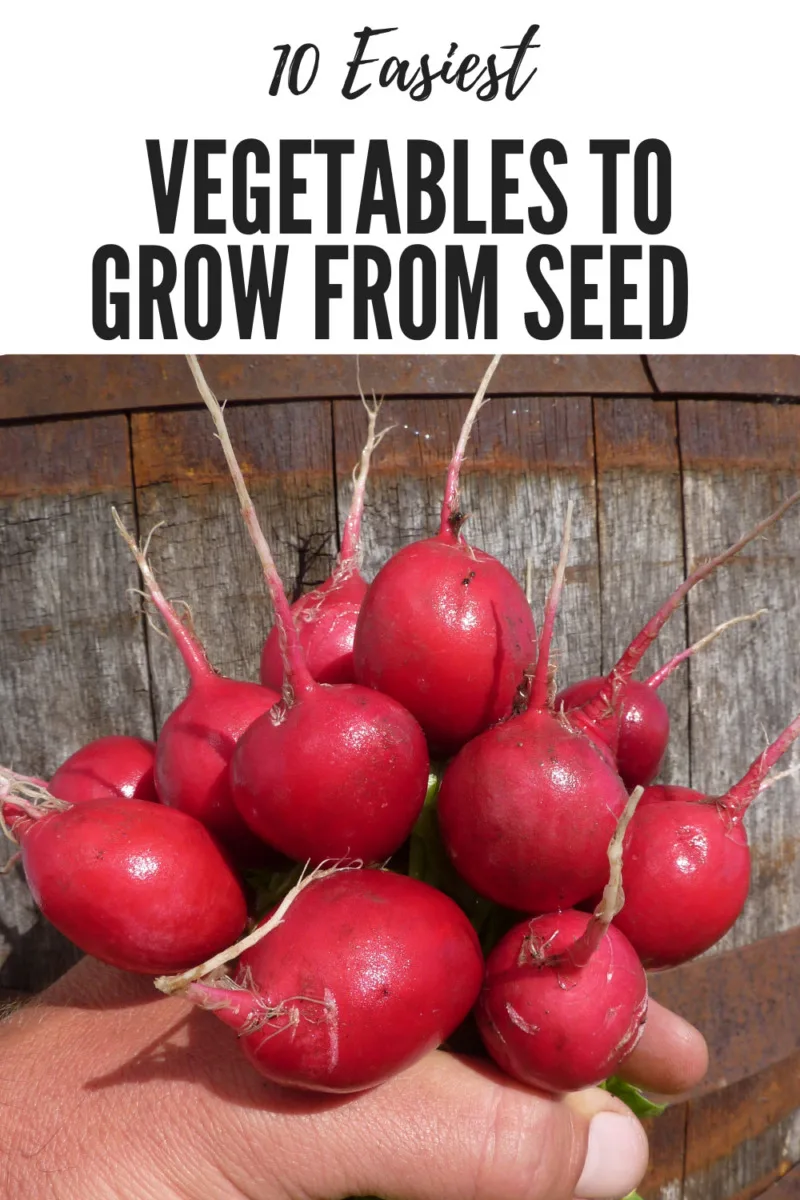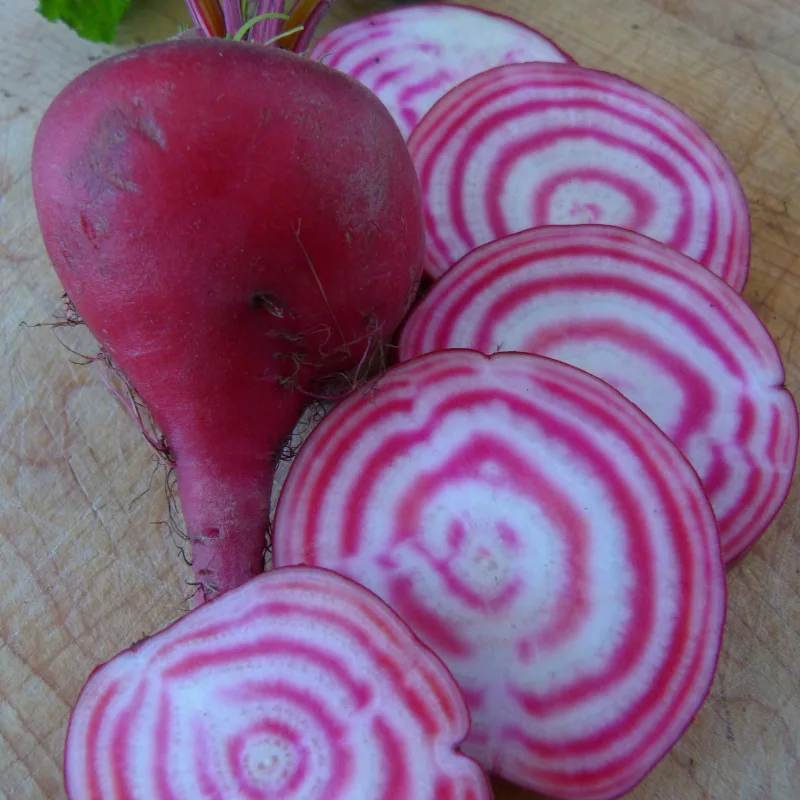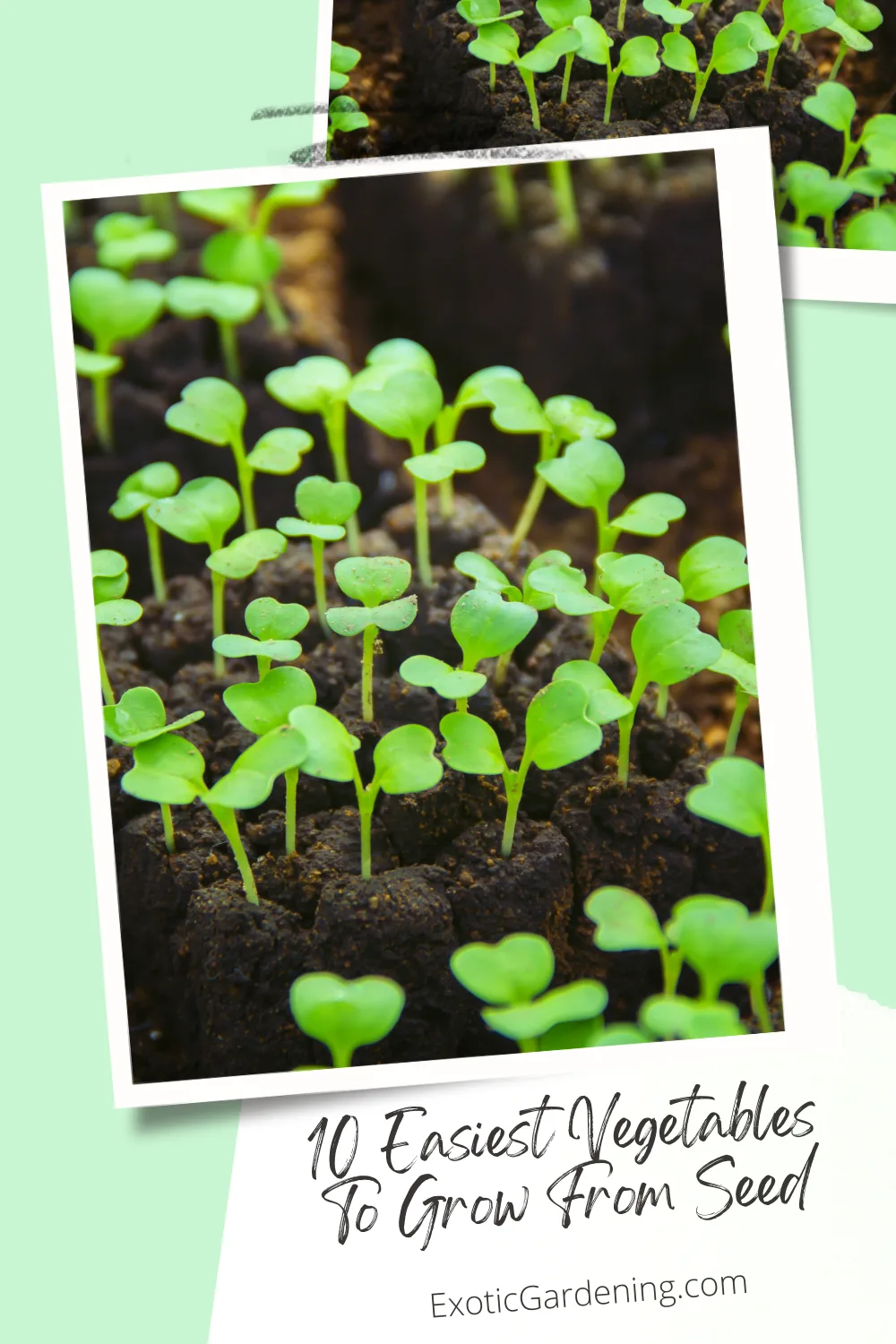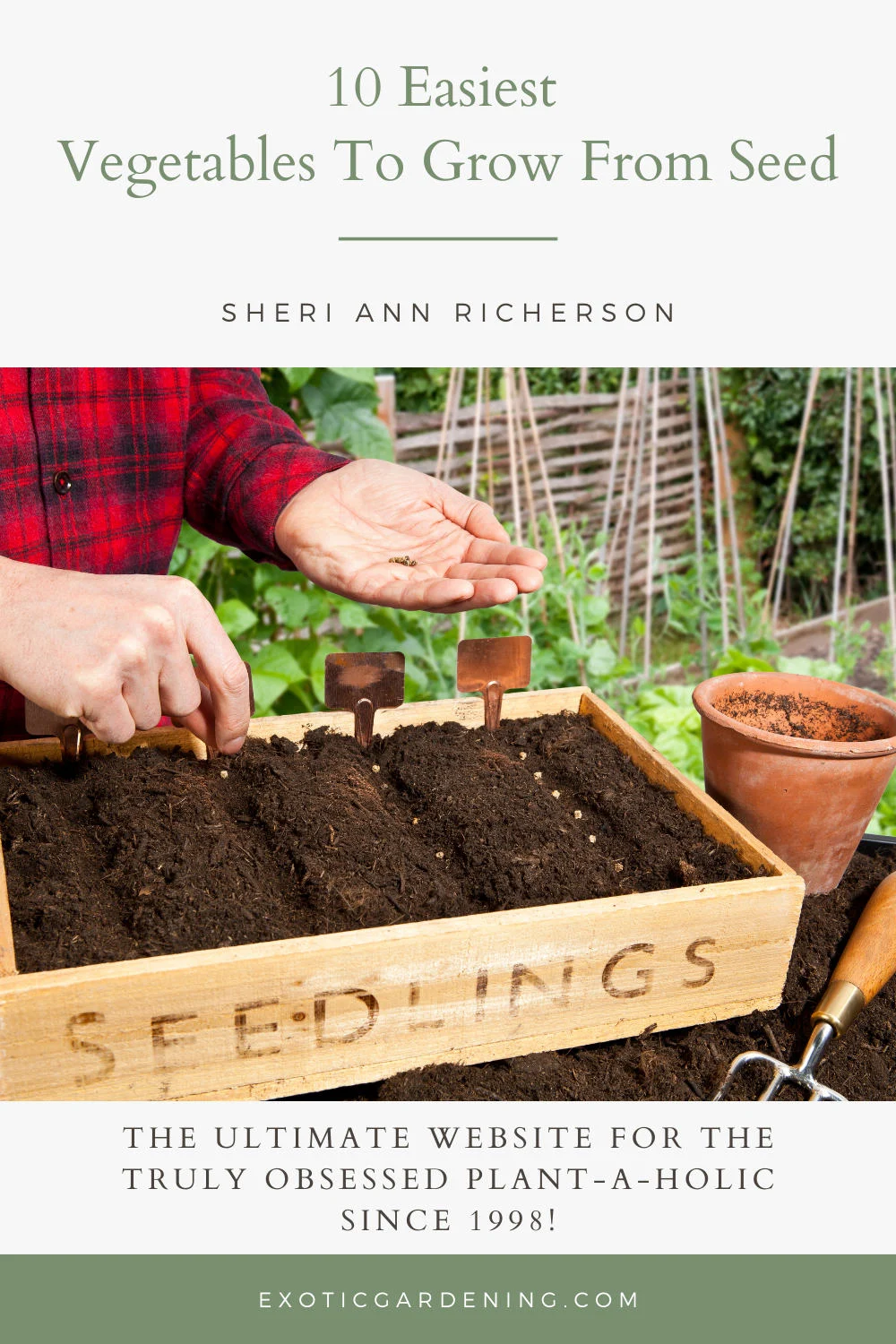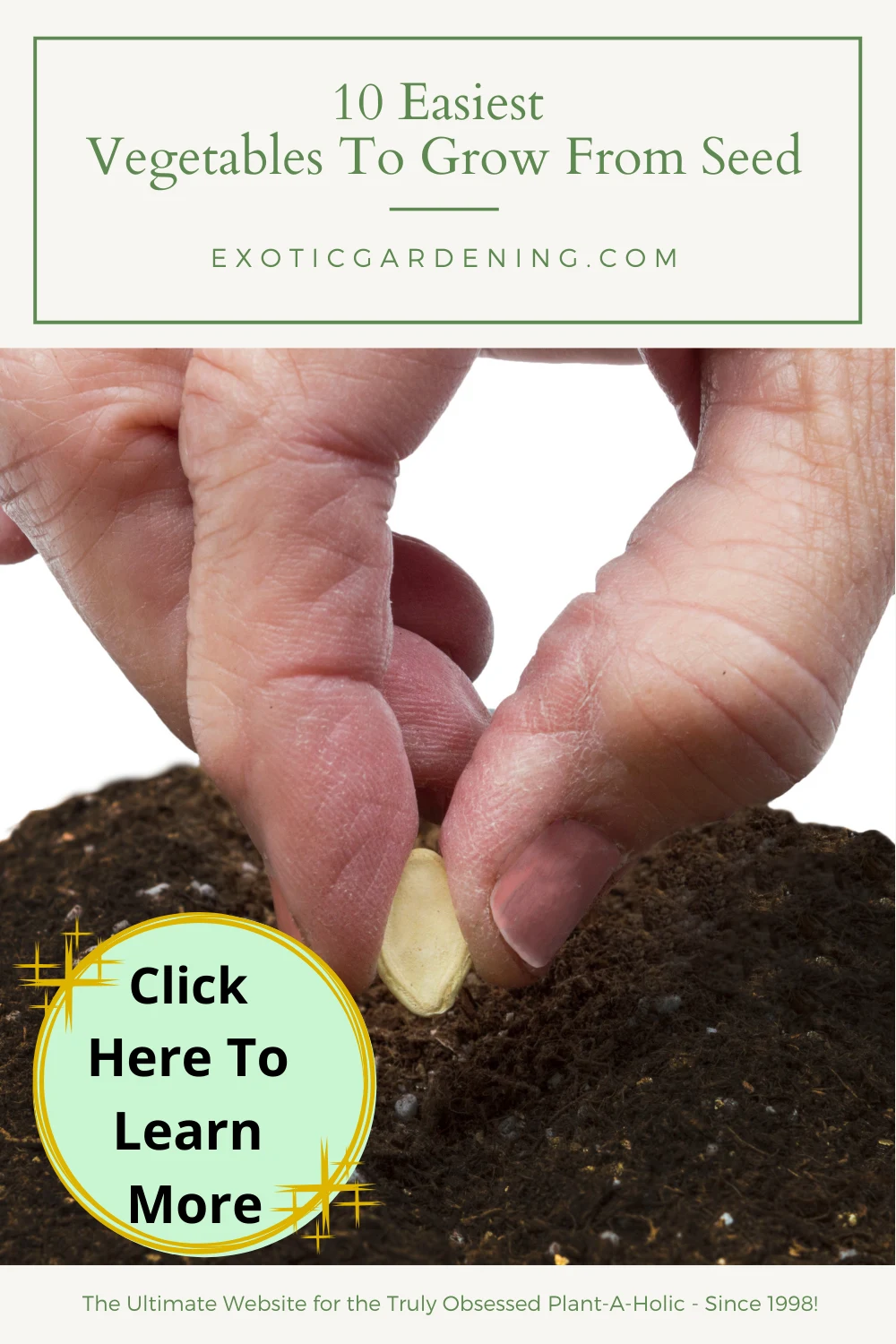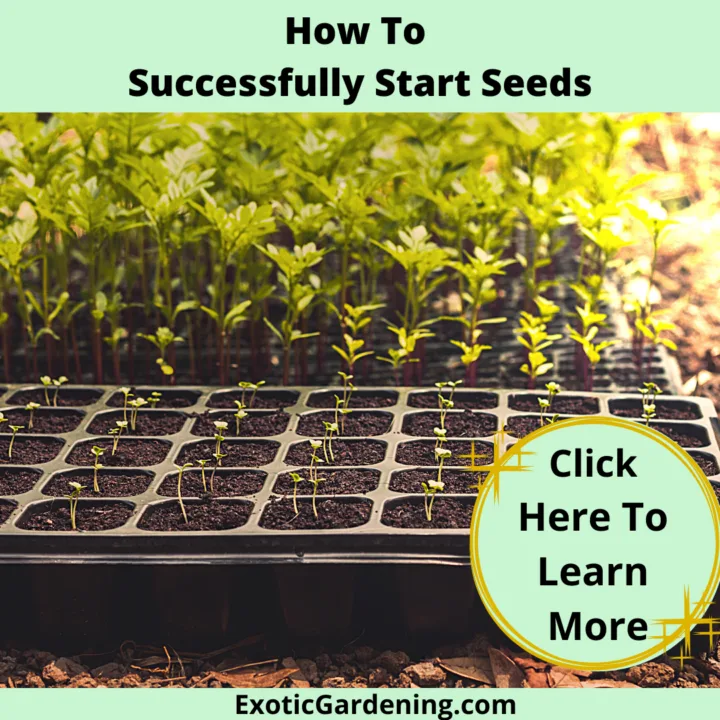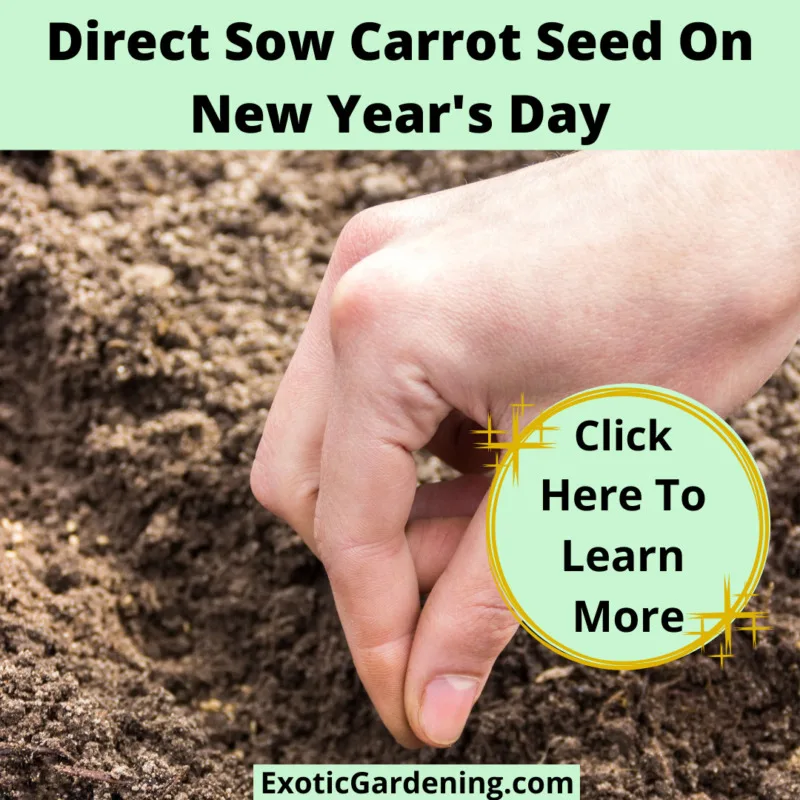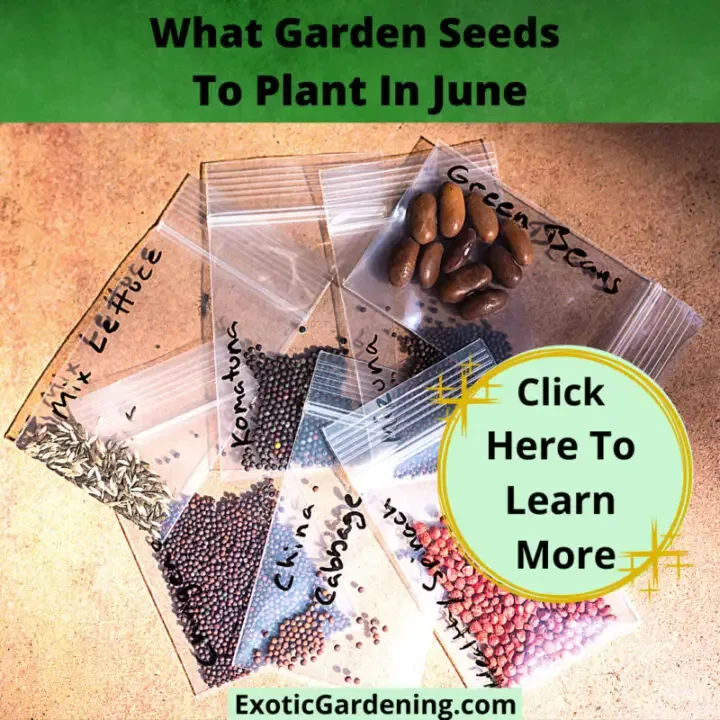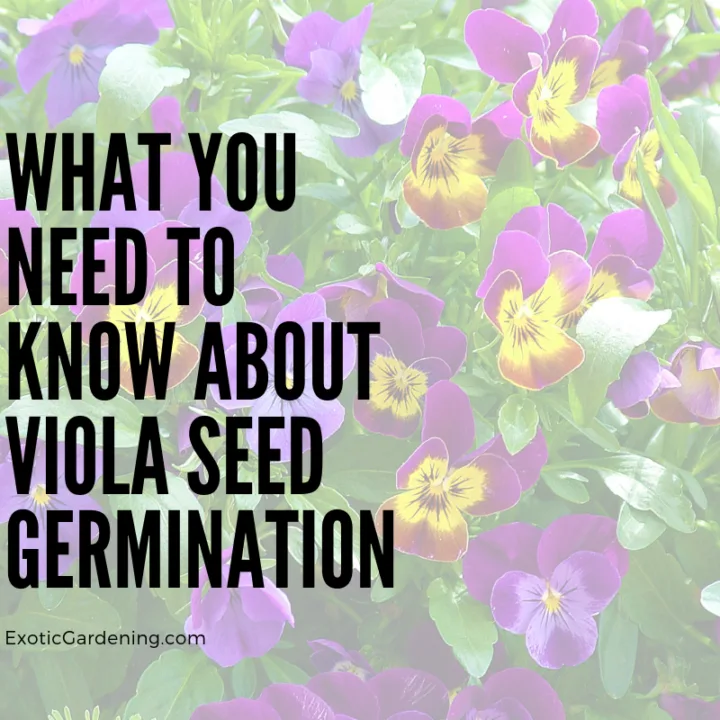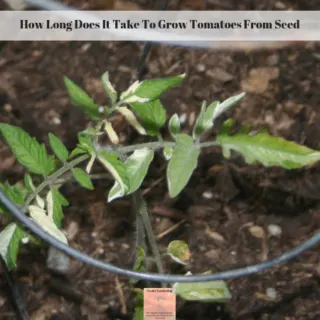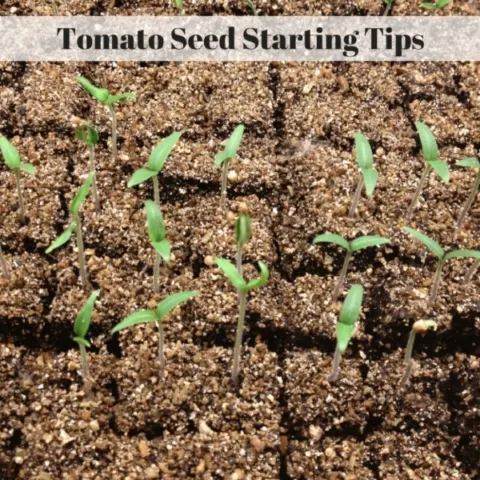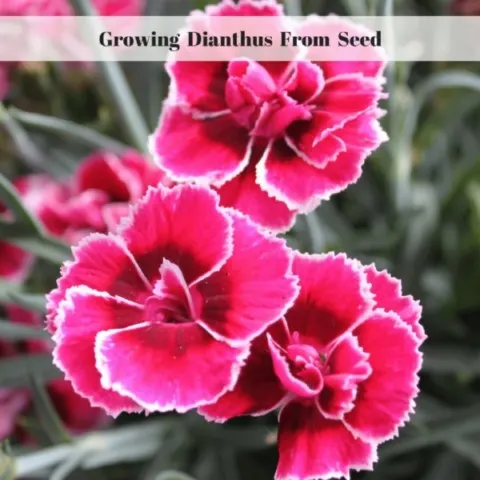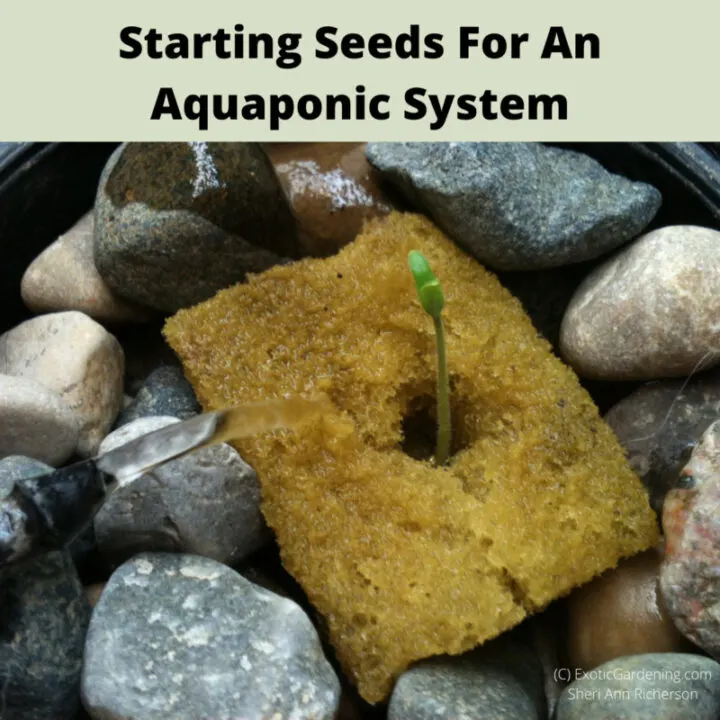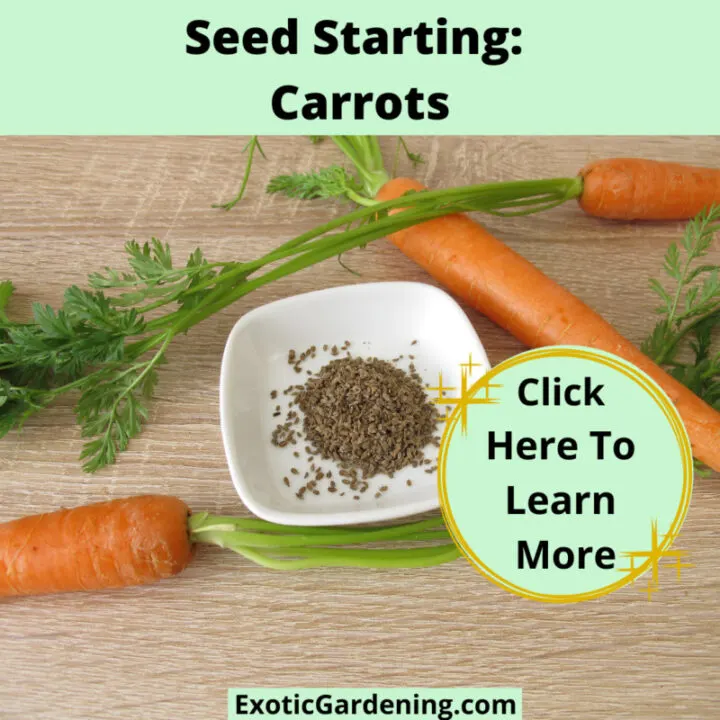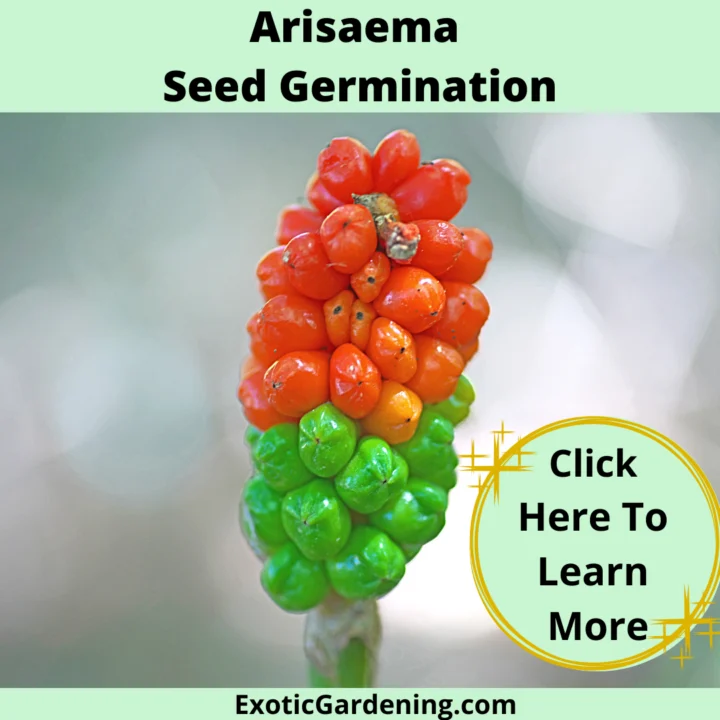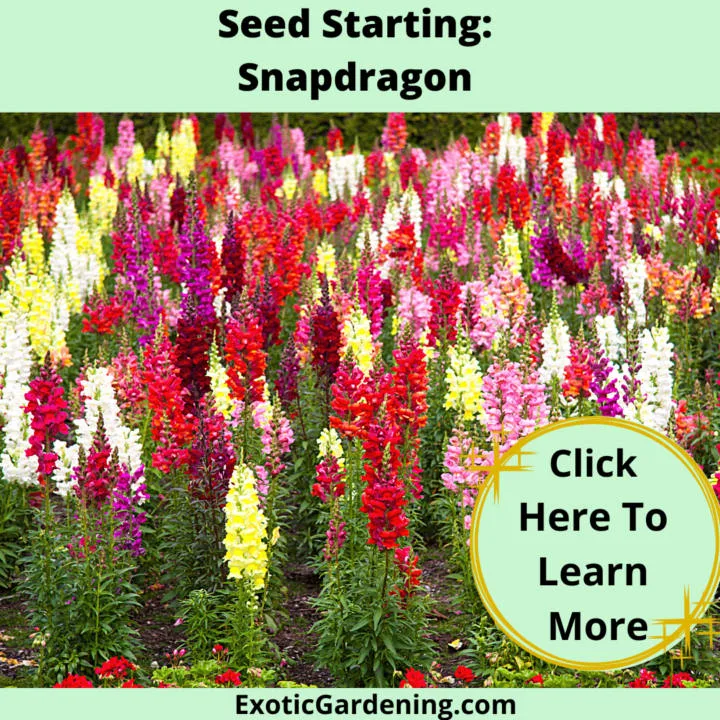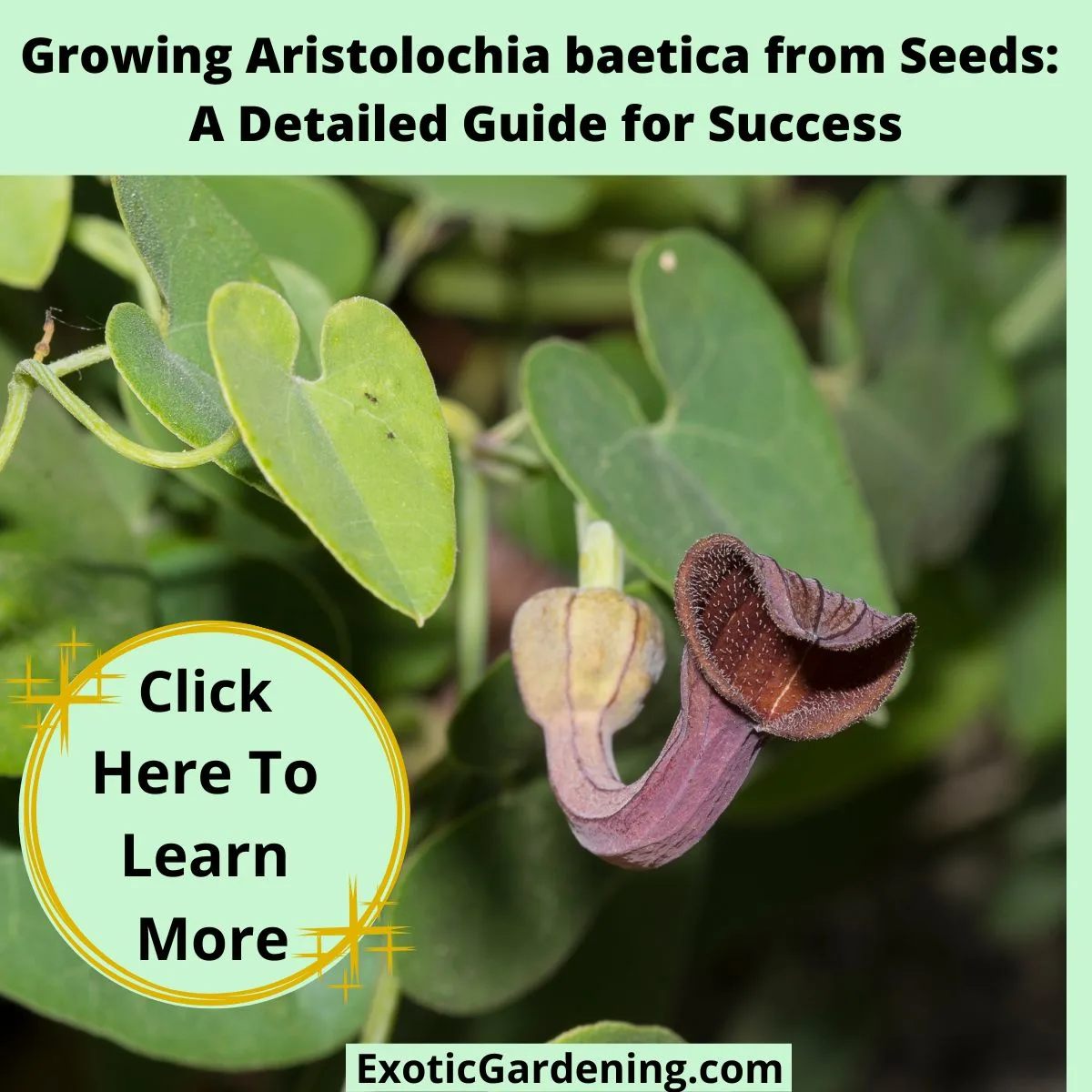Disclaimer: This is a guest post from Sustainable Seed Company. I did not receive any compensation for this post. I chose to share it because it contains useful information for my readers.
Have you ever wondered what the 10 easiest vegetables to grow from seed are?
Growing your own food is the most gratifying and rewarding act on the planet.
Plus, starting food from seeds is easy, inexpensive and fun.
But planning a garden can be daunting and many gardeners do not know where to start.
That is where Farmer John comes in.
He shares with you the 10 easiest vegetables to grow from seed.
10 Easiest Vegetables To Grow From Seed
“Planning a garden starts with choosing what you love to eat,” says Farmer John Fendley of the Sustainable Seed Company. “Your garden is the ultimate grocery store because it’s convenient and tailored to your taste. But there are a multitude of other benefits to gardening such as saving money, eating healthier food and burning calories.”
Over 1,500 varieties of certified organic and heirloom seeds are available from Sustainable Seed.
Farmer John suggests starting with these 10 simple seeds for beginners to have success in the garden.
Beets
Beets are cool weather crops that do best after the harsh winter cold and before the mid-summer heat.
They can also be grown when planted in the late summer for a fall harvest.
Perfect conditions for bountiful beats include soil at around 60 degrees F, plenty of water, and all the sun it can get.
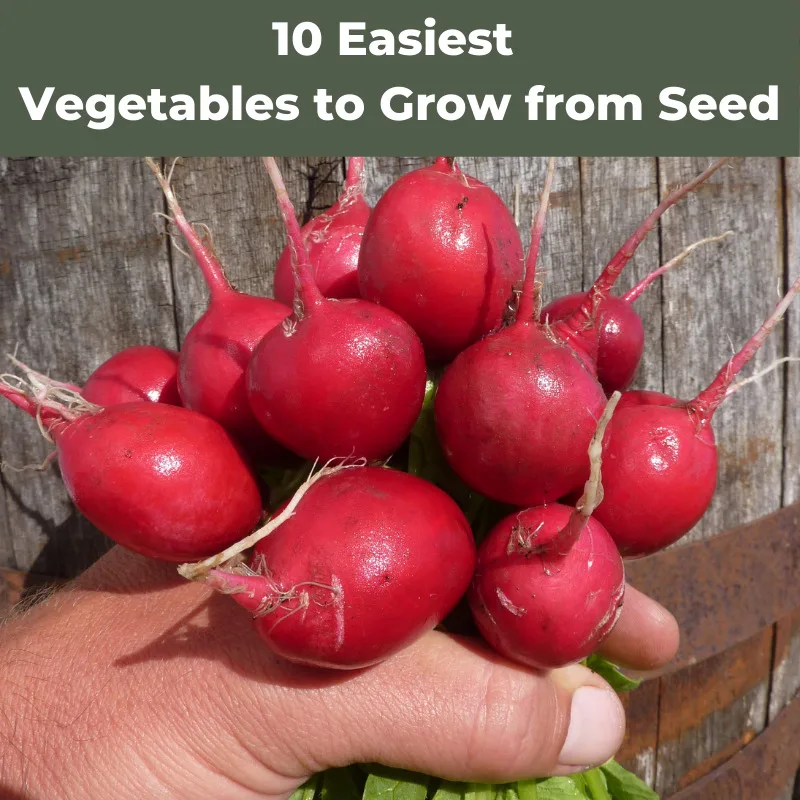
Radishes
Radishes are a great choice because they grow quickly and easily in both the spring and fall.
They can be ready to eat in less than a month from the time you plant seeds.
Peas
“Nothing beats peas for growing with kids” says Farmer John.
Both shorter and taller varieties like to climb.
Plant peas early in the season in well-draining soil on both sides of a trellis, by the time it gets warm, you'll be shelling away.
Swiss Chard
Swiss chard is rich with vitamins and minerals and is easy-to-care-for.
It is more frost and heat tolerant than other greens.
Sow the seeds directly into well composted manure, add water and watch it grow.
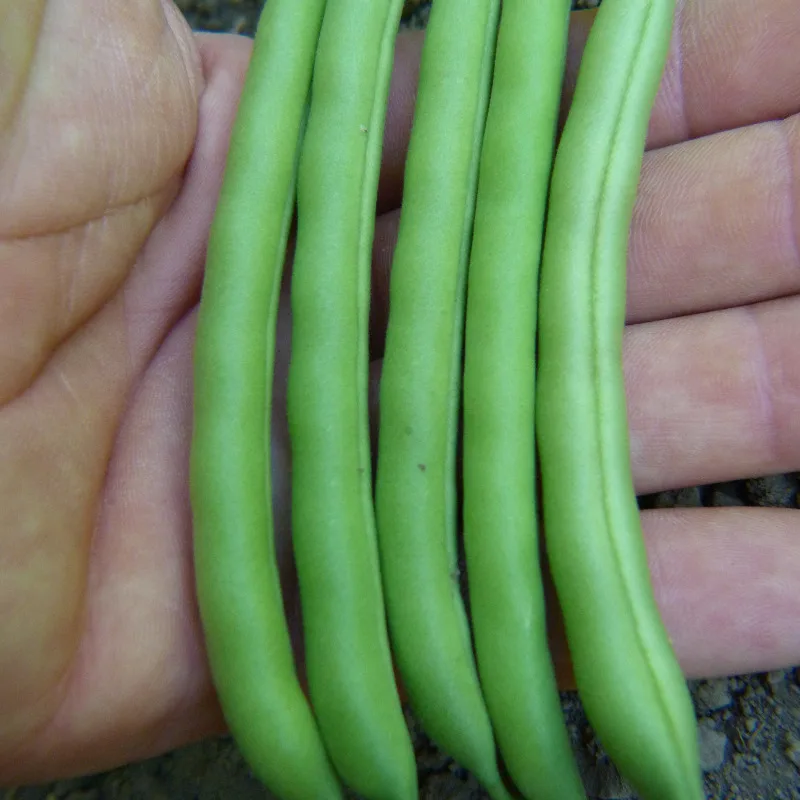
Beans
Like peas, most beans like to grow up.
They can do well when seeds are planted directly into warm soil with something to climb.
Beans are for beginners because most varieties produce for weeks and weeks if they are picked.
Give them full sun and plenty of water at the root.
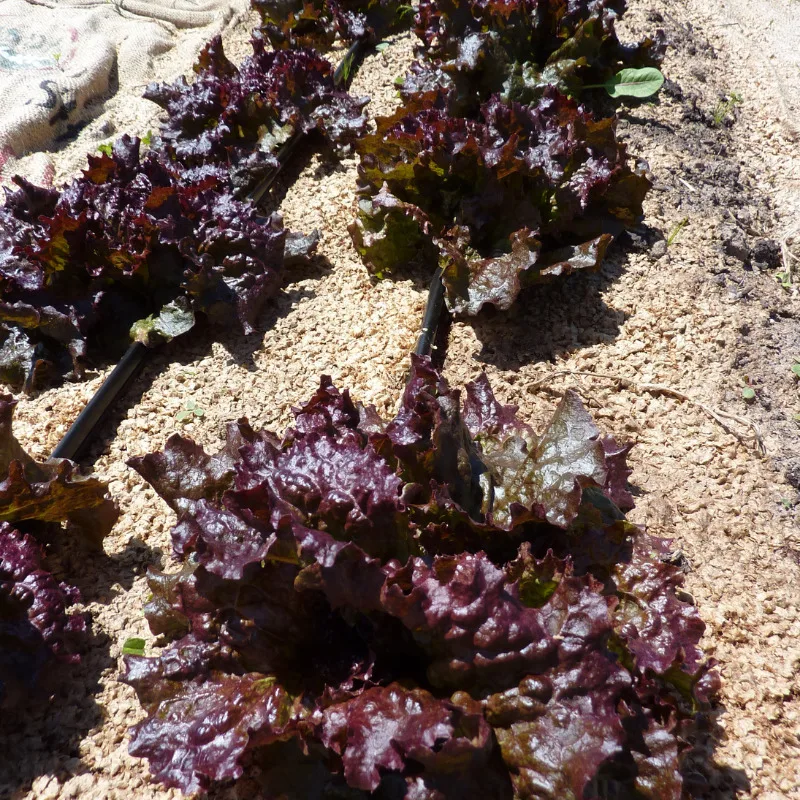
Lettuce
Lettuce comes in so many varieties that you're sure to find one that meets your growing and eating needs.
When it's very hot, most lettuce needs shade.
Since they grow close to the ground, they're perfect to plant in the shade cast by taller plants like tomatoes and beans.
Spinach
Spinach grows well in cool weather.
If you want a lot, you have to plant a lot.
Harvest it like lettuce, either by picking the largest leaves or by cutting all the leaves back to about one inch.
Farmer John says that “if you choose the latter method, spinach will grow back several times throughout the season.”
Tomatoes
Start tomatoes indoors in February or March.
Once they're in the ground in a spot with full sun, many varieties will be extremely prolific.
For a strong root system, plant the starters deeply, burying the stem up to the lowest leaves as the roots need to develop a strong foundation.
As the tomato plant grows, water regularly and expose it to plenty of sunshine.
Trim and remove weak leaves and fruit as it grows to allow for ripened fruit and leaves to flourish.
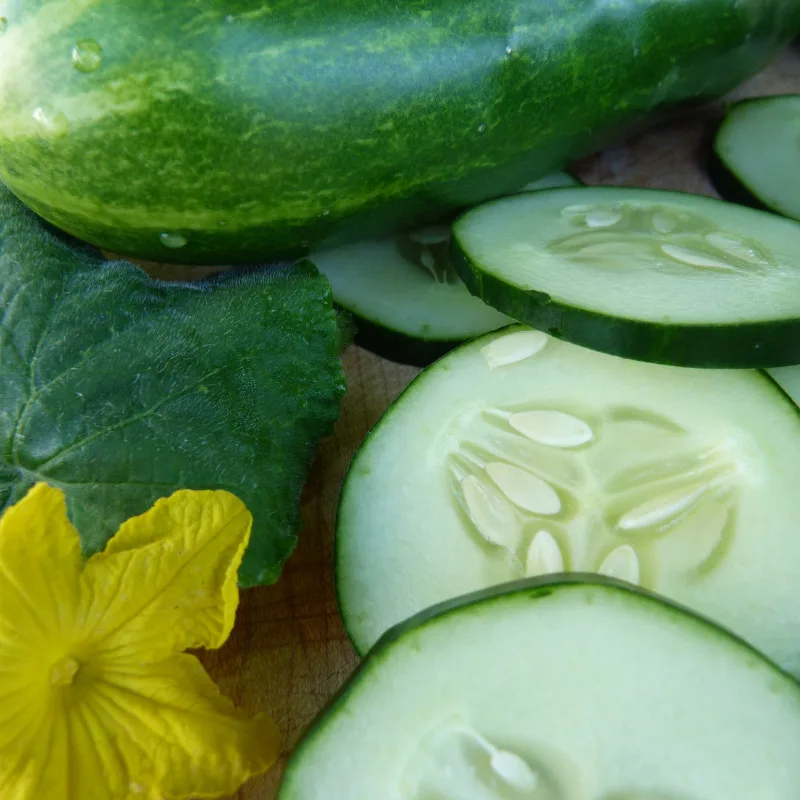
Cucumber
Cucumbers are flexible in their growing environments and can grow in containers, raised beds, rows, or hills.
As long as there is warm weather, ample sunshine (6-8 hours per day), and lots of water, a cucumber will grow.
One plant grows an abundance of cucumbers since they grow as bushes.
Be sure to space the plants over two and a half feet apart if growing several plants in a row.
Basil
Farmer John thinks herbs are some of the easiest plants to grow from seed, but the most versatile, basil.
It can be grown both indoor and out.
Ensure that it gets plenty of light, at least 6 hours, natural or artificial, per day.
Basil thrives in properly drained, nutrient packed soil and needs thinning maintenance at the early stages to ensure strong plant growth.
Grow Delicious Heirloom Vegetables
The selection available online for unique and delicious heirloom vegetables far surpasses anything found in supermarkets.
And when you begin to harvest and enjoy nature's bounty, you'll be well pleased at the money you save, and the amazing food you grew from seed.
So check out the estimated last spring frost in your area, and start your seeds...you'll be very happy you did.
About Sustainable Seed Company
Sustainable Seed Company is changing the world, one seed at a time.
Offering over 1,500 varieties of heirloom and certified organic seeds, Sustainable Seed practices sustainable, water conserving, and environmentally responsible farming techniques.
They grow over 50% of the seeds on their certified organic farm that is sustainably powered, the only company of its kind to do so.
All seeds are grown without the use of chemical fertilizers or pesticides.
Seed Starting
Kickstart your gardening journey with our curated Seed Starting Resources! This handy list is packed with everything you need to grow healthy plants from seed, whether you're a beginner or an experienced gardener. Discover essential tools, step-by-step instructions, and expert tips for selecting the best seeds, preparing your soil, and creating the ideal conditions for germination. From seed trays and grow lights to organic fertilizers and watering techniques, this resource has it all. Perfect for planning your next gardening adventure and ensuring success every step of the way!
How To Plant Brugmansia Seeds
Learn how to plant Brugmansia seeds as well as why you might want to start these fragrant night blooming plants from seed.
Arisaema Seed Germination: Faster blooms from seed grown plants
Arisaema seed germination is easy as long as you have fresh seeds. You can even trick seed grown plants into blooming faster.
Product Review: Burpee Eco-Friendly All-In-One 25-Plant Greenhouse Kit
I gave the Burpee Eco-Friendly All-In-One 25-Plant Greenhouse Kit a try. Learn how to use it and what I thought of it.
Seed Starting: Snapdragon
When it comes to seed starting, snapdragon are pretty easy. You can direct sow snapdragons. Learn about growing snapdragons from seed.
Growing Aristolochia baetica from Seeds: A Detailed Guide for Success
A detailed image of Aristolochia baetica with its characteristic pipe-shaped flower and bulbous base, surrounded by green leaves.

